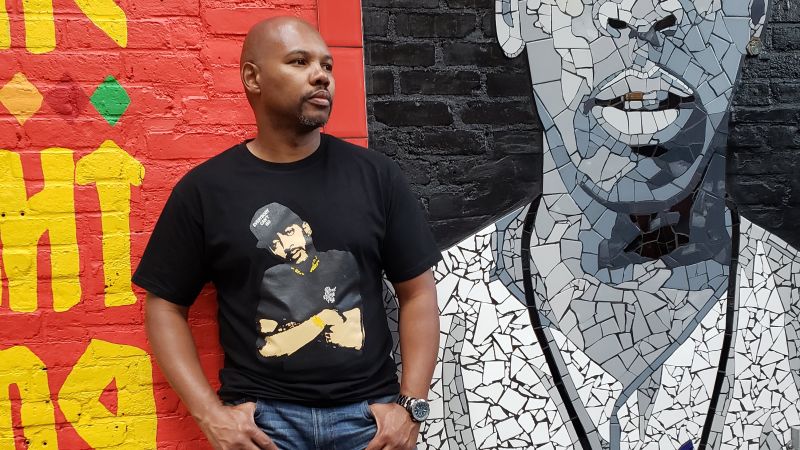Chris Williams, a resident of Brooklyn, experienced a life-altering event when he felt a sharp pain in his abdomen on a Tuesday evening in September 2021. His previously manageable discomfort escalated into intense pain and nausea, prompting him to seek emergency medical attention. The following morning, after enduring an even more debilitating night of symptoms, Williams found himself in the emergency room. Once there, doctors diagnosed him with appendicitis, necessitating the surgical removal of his appendix.
However, a week later, while he was at the hospital for a routine follow-up to have the staples removed from his surgery, he received news that would forever change his life. During the follow-up, medical professionals informed him that they had discovered a tumor on his appendix, which ultimately turned out to be cancerous. Williams, then 48 years old, recalled the moment he received this shocking news: “It was actually a blessing,” he stated. Remarkably, he considered this unfortunate turn of events—a near rupture of his appendix—as a divine intervention that led to an early diagnosis of a serious illness. He learned the cancer was at stage III, which he recognized could have easily progressed to stage IV, a far more advanced and lethal stage, had it remained undetected.
Fast forward to November 2022, Williams proudly shares that he is now cancer-free after completing his treatment. His case is becoming increasingly common; more and more young adults in the United States are receiving diagnoses of appendix cancer. The rarity of appendix cancer—an ailment that affects approximately one to two people in every one million on a yearly basis—underlines the alarm raised in a recent study about rising diagnosis rates among generations like Gen X and millennials. The research indicated that between 1975 and 2019, the incidence of appendix cancer diagnoses has more than tripled among those born from 1976 to 1984 and quadrupled for those born from 1981 to 1989.
Dr. Andreana Holowatyj, the lead author of the study, stressed the importance of these findings. “It’s alarming overall,” she noted, expressing concern for the generational trends observed in cancers affecting the gastrointestinal tract. The researchers, affiliated with prestigious institutions like the Vanderbilt University Medical Center and the University of Texas Health Science Center, scrutinized data from 4,858 American adults diagnosed with appendix cancer over several decades. This study’s outcomes suggest that something environmental may be contributing to an increased cancer risk for these younger populations, with obesity often identified as a potential contributing factor.
Despite the alarming trends, Holowatyj and her colleagues did not discover a methodical correlation between improved screening techniques and the rising numbers of diagnoses, leading them to surmise that multiple, intertwined environmental factors may be at play. Participants in the study experienced cancers of the gastrointestinal system that included symptoms similar to appendicitis, such as abdominal bloating and pelvic pain. These hints offer a forewarning but lack standardized screening protocols.
Williams’ personal journey didn’t end with his cancer treatment. He has faced considerable health challenges, including four heart attacks—three of which occurred after his cancer diagnosis. He attributes many of his health issues to chronic stress and emphasizes the connection between emotional and physical well-being. “Many men, including myself, often internalize their stresses, which can wreak havoc on both mental and physical health,” he disclosed.
Determined to effectuate change, Williams founded the nonprofit organization Heart, Body & Soul, aimed at empowering communities of color, particularly Black men, by equipping them with vital health resources. The initiative fosters communication between these communities and healthcare providers, addressing systemic issues like the cultural invisibility of Black patients in healthcare settings. He is an advocate for elaborate health checks and comprehensive care regimens, stressing the importance of a holistic approach to health.
Utilizing his experiences, Williams tirelessly promotes the necessity of awareness regarding earlier signs of illness and emphasizes proactive discussions with medical professionals. With the rising trends of cancer in younger populations, his motives extend beyond personal healing; they aim to inspire an entire community to prioritize their health and develop supportive networks for mental and physical wellness. Through his efforts, he hopes to illuminate pathways to better health management and the significance of cultivating an attentive, proactive approach to healthcare.



